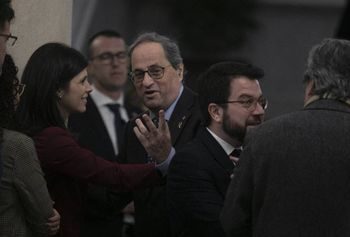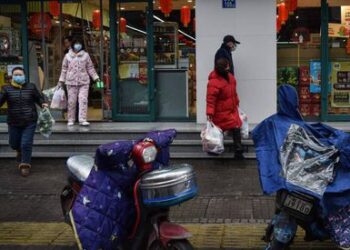
Spain’s High Court, the Audiencia Nacional, wants to try Rifaat Ali al-Assad, the uncle of Syrian president Bashar al-Assad, and 13 other people for money laundering activities.
Judge José de la Mata is targeting Rifaat Ali al-Assad, a former vice-president of Syria, eight of his children and two of his wives, among others.
After ending his probe, the investigating judge believes the group may have laundered over €600 million in Spain, besides other amounts in various European countries, chiefly France and the United Kingdom. The funds have allegedly been siphoned from Syria’s state coffers.
In 1986, al-Assad purchased 244 parking spots through a company registered in Gibraltar
De la Mata is recommending to proceed against these 14 individuals, whom he describes as having acted in a concerted manner, following a preconceived plan that goes back to the 1980s.
Rifaat Ali al-Assad left Syria in 1984, and allegedly agreed with his brother Hafez al-Assad, who was then the president, that he would take around $300 million of public money with him (around €270 million in today’s values).
De la Mata’s investigation also adds that in the 1970s, Rifaat al-Assad obtained unlawful gains from criminal activities ranging from extortion to threats, smuggling, archeological plunder, real estate appropriation and drug trafficking.
Wealth in Spain
The al-Assads’ first acquisitions in Spain took place in 1986, when they purchased 244 parking spots through a company registered in Gibraltar. The money plundered from Syria was invested in real estate and business ventures in Málaga province, especially at strategic locations along the Costa del Sol.
In Benahavís, Rifaat al-Assad purchased a property covering 33 million square meters. The court investigation believes he owns 507 properties in Spain worth €695 million.
The assets were concealed by putting them to the name of various companies whose administrators were his eight children and two of his wives
In Spain, these assets were concealed by putting them to the name of various companies whose administrators were his eight children and two of his wives.
De la Mata’s investigation details the role played by each of the individuals within the criminal group, and underscores “the determining support by legions of advisors at all stages of implementation, with the goal of concealing, transforming and laundering all that capital.”
The key to the strategy’s success, the judge believes, was “the sharing out of tasks and the perfect coordination between all the members of the organization: the father and leader, Rifaat Ali al-Assad, was concealed behind all the others.”
The group used tax havens, corporate instruments and hundreds of businesses administered by family members and frontmen for a prolonged period of time, the investigation finds. These activities have recently been blocked, in Spain and in other European countries. In 2017, the Spanish High Court confiscated over €600 million in assets thought to be linked to Rifaat al-Assad.
De la Mata rejects the family’s claim that their assets are the result of gifts from the royal family of Saudi Arabia. The investigation has determined that the real estate purchases did not originate in Saudi donations.
Al-Assad, who is already facing trial in France for embezzling Syrian state funds, is additionally under investigation in Switzerland for war crimes allegedly perpetrated in Syria in the 1980s.
A property in a protected area

Nacho Sánchez
The property covers 3,300 hectares, most of them within the municipal limits of Benahavís, with a small portion belonging to Istán. The land has not been developed, it is part of the European Union’s Natura network of protected areas, and it falls under the Habitat directive. The green group Ecologistas en Acción says this is the maximum protection that may be awarded to any space, because it is a supranational directive that must guide any action by lower authorities. The property is also located within an area that could be turned into a national park, the Parque Nacional de la Sierra de las Nieves, although the project still needs to go through Congress.
English version by Susana Urra.
Get real time update about this post categories directly on your device, subscribe now.





















